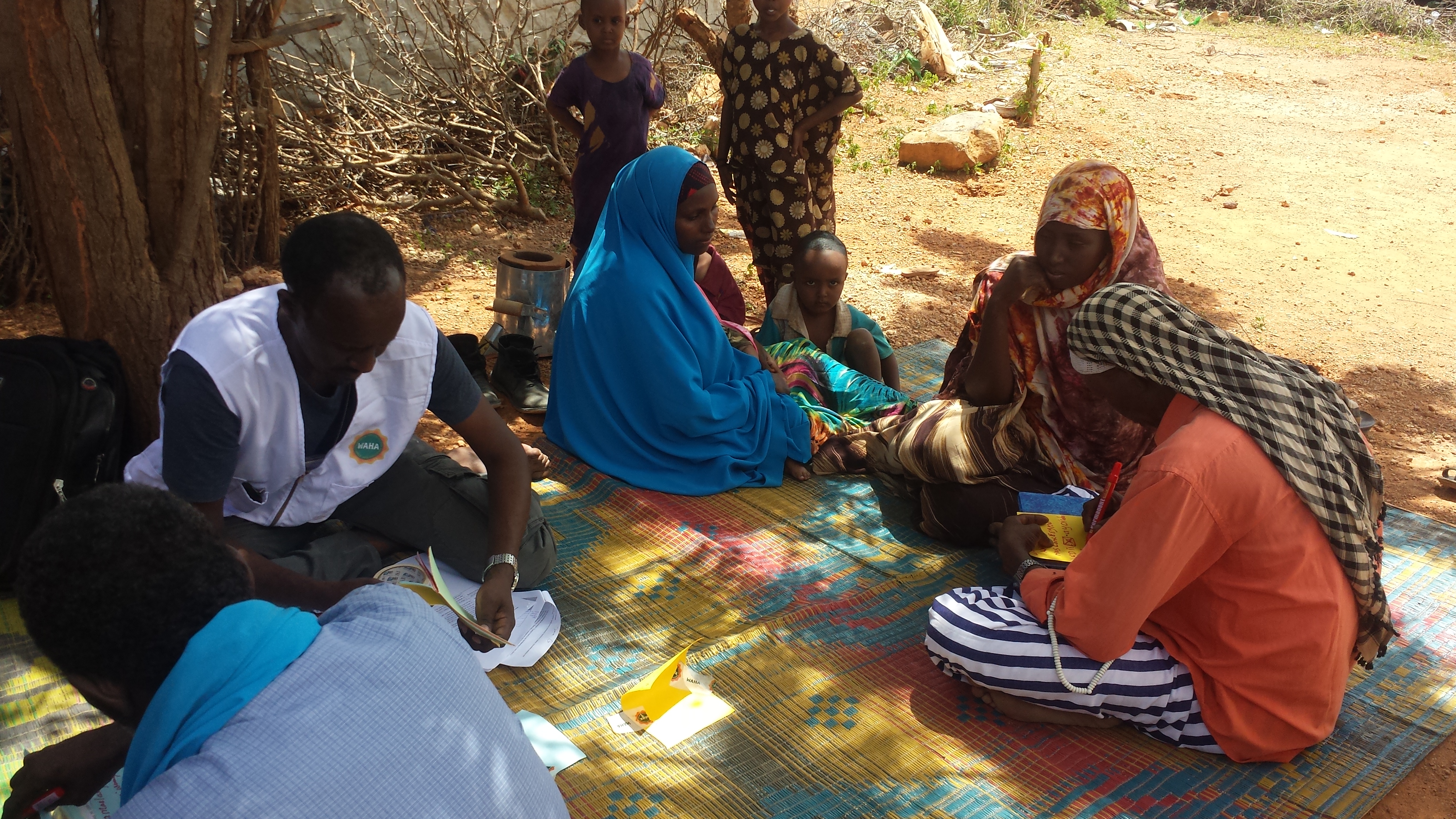Shaping the future: Our strategy for research and innovation in humanitarian response.

Shaping the future: Our strategy for research and innovation in humanitarian response.


Blog written by Samuel Tewolde, Intervention Specialist for Emergency Operations, Addis Ababa, Ethiopia.
In our last blog we shared our experiences from our field trip. We talked about innovative qualitative data collection techniques that were adapted and pretested within Dollo Ado refugee camps. In this blog we will briefly discuss participatory research methods to provide some insight to you, our readers!
Participatory Learning and Action (PLA) methods are an approach to learning about and engaging with communities that goes beyond traditional in-depth interviews or focus group discussions.
This method differs from most other approaches to public health research because it is based on the target audience’s reflection, action and analysis. For example it may involve analysing the causes or solutions to a particular problem together, or prioritizing issues. PLA approaches include free listing and ranking exercises, timelines and mapping approaches, among others, to gain unique insights from the perspective of the community.
As briefly explained in our previous blog, the WAHA team is strengthening the qualitative research methodology to include participatory activities in order to expand the data collection.
In Dollo Ado, our qualitative data collection will therefore employ in-depth interviews and focus group discussions, as well as free listing and community mapping exercises. The final output of the qualitative data will be used to inform the intervention development process.
The addition of PLA methods will ensure a diversity of perspectives which will better inform the curriculum adaption process. By holding discussions with our multi-disciplinary team and integrating the lessons learned from the ongoing study in Butajira, Ethiopia, our methodology has been further strengthened following inputs from the pretesting process.
For example we intend to use free listing to learn about the experiences of violence. In this regard our purpose in conducting free listing is to help isolate and define relevant themes. We will ask respondents to simply list as many violence related items as they can think of in different settings or locations within the camp.
Using our highly trained data collectors, participants will be asked to write their responses on a card and their cards will be fixed to a board/wall that can be seen by everyone. The ensuing discussions can validate, modify, seek consensus etc. for the different responses on each card. The research team will then have some insight on its curricula development process.
Similarly, we plan to use community mapping, a technique where a group of individuals from the study population are asked to draw or build maps and models of their life experiences or their community. They will use locally available materials including giant paper, markers, printouts, magazine clippings, or sticks, stones, grass, wood, leaves, sand, etc. Both the process of building the map and the final product facilitates the identification and exploration of topics of interest for the research. Using these methods, our respondents will be able to reflect on history, culture and local context, and social relationships which will again inform the intervention adaption process.
As has been witnessed in our recent pretesting activity, the PLA methods were well accepted and respondents found the process to be enjoyable and empowering.
In our next blog we will be sharing more updates from the field, particularly experiences related to the qualitative data collection processes.
Feature photo caption: Free learning exercise in action. Credit: Samuel Tewolde, WAHA.

 Please upgrade your browser
Please upgrade your browser
You are seeing this because you are using a browser that is not supported. The Elrha website is built using modern technology and standards. We recommend upgrading your browser with one of the following to properly view our website:
Windows MacPlease note that this is not an exhaustive list of browsers. We also do not intend to recommend a particular manufacturer's browser over another's; only to suggest upgrading to a browser version that is compliant with current standards to give you the best and most secure browsing experience.